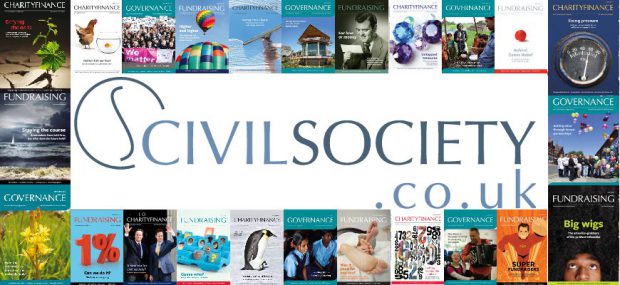CSM: UK’s Only Independent Media Company Focused Solely on Civil Society and Charity Sector

Civil Society Media is the UK's only independent media company focused solely on the civil society and charity sector. The organization, which continues both print and online publications, also conducts research and organizes events. We talked to Gareth Jones, the group editor of Civil Society Media, founded by Daniel Phelan and now owned by his wife Cathy Phelan, on company and its publications.
Could you please tell us about the foundation of “Civil Society Media” and “Charity Finance”? How did the idea of creating a media company focusing on civil society sector come up?
Charity Finance was launched in 1990 as the company’s first title. At this time charities were gaining a higher profile due to the recent success of Bob Geldof’s Live Aid event, which brought together the biggest rock bands of the day for a major concert for raise funds for Africa. There were also a number of major business scandals in the UK in the 1980s, which woke people up to the fact that charities needed to professionalise too, particularly in terms of their financial management and reporting.
Our founder Daniel Phelan identified the need to launch a magazine for finance professionals working in the charity sector. I’m not sure if focusing solely on civil society was explicitly the plan at that stage, but over time the company certainly evolved that way as other opportunities to help the sector presented themselves. Charities certainly became Daniel’s overriding passion.
What are the definition and limits of “Civil Society” for you? Do you follow and include the work of local administrations, social businesses or any other alternative institutions creating social impact?
Broadly speaking civil society is anything that exists outside of the family, market (business) and the state. In practice our core audience is charities registered with the Charity Commission, as they share common regulations and challenges. However, we do take an interest in other models such as social enterprise (many social enterprises are actually charities), community action and non-charitable campaigning like Extinction Rebellion, as they all offer something that charities can learn from.
Beyond journalism, Civil Society Media is a home for diverse activities such as conducting researches and organizing events. How would you describe the relation between journalism and other activities?
Our journalism is profitable, but where publishing companies can really look to grow in today’s commercial environment is in events, which have been a huge growth area. Our print products provide the prestige and reader base upon which was can build events, while our journalists provide an invaluable source of expertise in making sure that our events are valuable and essential to attendees.
Our research work is a very important part of Charity Finance magazine in particular. The benchmarking provided by the Charity Audit Survey has been credited with suppressing the inflation of audit fees charged to charities. Our research work is carried out by our journalists, albeit we make sure to recruit journalists with the necessary numeracy skills.
How do you define the overall work of Civil Society Media? As Civil Pages we use the term of “civil society journalism”. Do you think it would be an appropriate conceptualization for Civil Society Media, too?
Civil Society Media is a profit-making company but we are not in the business of making millions for shareholders. As Daniel Phelan sadly passed away in 2015, we are now owned by his wife Cathy. Her priorities are to make a positive contribution to civil society and to preserve Daniel’s legacy, so the vast majority of our profits are reinvested into the business. We are effectively a social enterprise, although we believe that the commercial focus that arises from being a profit-making company is important to our success.
Are you aware of any other organization or media agency which is doing a similar job?
In the UK there are a few other publications focused on the charity sector and civil society, but they are all owned by large publishing houses that operate across a wider portfolio. There are also a number of membership organizations that offer events and other services to charities. But our position as a for-profit publishing house dedicated solely to civil society is unique in this country.
Looking back how your work evolved from 90s to today, what do you see in the future?
We are always looking to grow our business in order to find new ways to support the charity sector and new revenue streams. Perhaps one day all our publications will move online, but for now print is healthy and will continue to be so for the foreseeable future. And the charity sector will continue to need support and advice, so there will always be a role for us.

Bizi Takip Edin